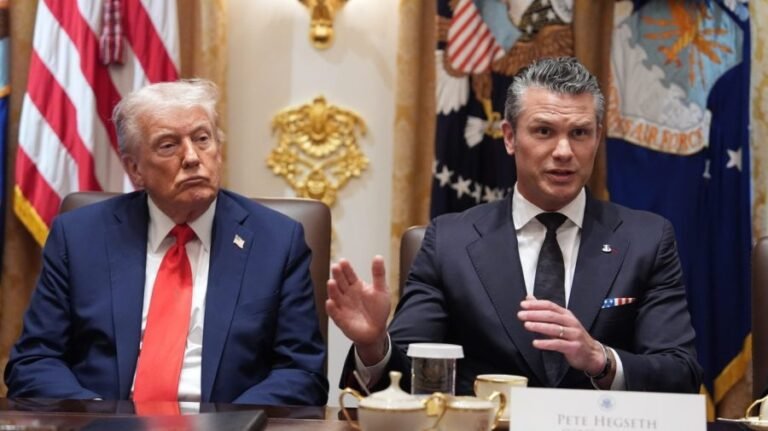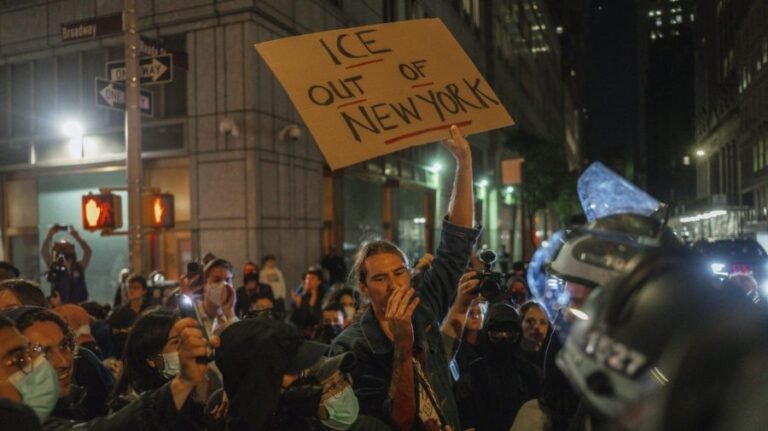
We need to talk about antisemitism. And by “we,” I mean Black people.
With news of Israel’s strikes on Iran’s nuclear facilities, there is a pulsing, bright racial line in American political debate. The divide is tied to the tensions between Jews and the heavily Muslim population in the Middle East.
In Tuesday’s New York City Democratic mayoral primary, many Jewish groups have lined up in opposition to Zohran Mamdani, an outspoken critic of Israel’s war against Hamas. A Ugandan immigrant, born to Indian parents, Mamdani openly rails against what he calls Israel’s “genocide” against Palestinians. Mamdani vows to “arrest“ Israeli Prime Minister Benjamin Netanyahu if he sets foot in New York City during his mayoralty.
Mamdani’s political rise is based on strong support from progressive white voters, including Sen. Bernie Sanders (I-Vt.), and Latino voters, as well as his fellow Muslims and Black voters under 45.
The idea of Black New Yorkers giving support to Mamdani because of his opposition to Israel is, well, bizarre.
Does that mean liberals of color who are not Jews support Hamas? Hamas’s Muslim fundamentalism is diametrically opposed to the principled history of the Black civil rights struggle.
Is the American left similarly willing to oppose Israel’s war on Iran without considering Iran’s long history of funding murderous terrorist groups?
As the author of history books on the U.S. civil rights movement, trust me when I say the pillars elevating that cause remain clear: The belief in equal rights for everyone under law, including voting rights, respect for religious rights and free speech.
Hamas and Iran have never stood for any of that. Look at their lack of support for women’s rights. And forget about gay rights. Ask Salman Rushdie, the author living under death threats, about support for artistic freedom from those locked into Muslim orthodoxy.
But that history is being short-circuited by gut-level empathy. It comes from people of color identifying with Palestinians, a people of color being dominated by superior military firepower and wealth held by the largely white leaders of Israel. This is certainly the case with some younger Black Americans, who did not live through the 20th-century civil rights struggle and now see 55,000 Palestinians and at least 250 humanitarian aid workers killed due to Israel’s attacks on Gaza.
Meanwhile, President Trump has used allegations of antisemitism as a pretext to silence his left-wing critics on college campuses. In March, the administration canceled millions of dollars in funding to Columbia University, accusing the school of “inaction in the face of persistent harassment of Jewish students.”
ICE agents detained Mahmoud Khalil, a Columbia protest leader and foreign national, on charges that he had promoted antisemitism. But when a judge found the charge weak, prosecutors shifted to alleged errors in his application for U.S. residency. The judge ordered Khalil released on Friday.
Trump’s flimsy pretext of combating antisemitism to wage a war on universities has stirred opposition — most of all to his refusal to push back against Israel’s aggression in Gaza. Add to that Trump’s slams on diversity efforts — a federal judge ruled last week that his administration’s pattern of cuts to research grants showed “government racial discrimination.”
But note well that Black, Latino and Asian American students are largely not organizing the angry campus protests against Israel. It is mostly Arab American and international students at the front of the protests, who are most often the source of Jewish students feeling ostracized, even threatened.
Fear of being charged with antisemitism has also kept many Black and Latino members of Congress out of the debate over U.S. support for Israel, despite legitimate questions from people of all colors around the world about Israel’s handling of Palestinians and Iran. Criticism of Israeli policy is not necessarily based on antisemitism.
The lack of congressional debate is directly tied to the two Black Democrats — Missouri’s Cori Bush and New York’s Jamaal Bowman — who openly criticized Israeli policies. Pro-Israel groups supported candidates against them in their Democratic primaries, and both lost in 2024.
Another factor is that in national politics, Jewish voters remain strong Democrats. In the 2024 presidential race, 79 percent of Jewish voters supported Vice President Kamala Harris, according to NBC News exit polls.
Trump famously told Jewish voters in a speech last year, “You have a big protector in me.” He preemptively blamed Jews for any chance he might lose, saying that “the Jewish people would really have a lot to do with” him losing the election.
But Trump’s claim to be an ally of American Jews requires blinders. With Trump leading the GOP since 2016, a UMass-Amherst poll from 2022 found that two-thirds of Republicans endorse some form of the tenets of the “Great Replacement” conspiracy theory, which holds that Jews are trying to diminish the white working class by bringing in dark-skinned immigrants.
For decades before Trump’s rise, there existed a deep vein of antisemitism in conservative politics. Pat Buchanan, once a GOP presidential contender, famously said in 1990 that Capitol Hill was “Israeli-occupied territory.”
Now there is a very real problem with Trump’s disingenuous use of claims about antisemitism to further his right-wing agenda.
A cynic, especially a Black cynic, could be forgiven for thinking Trump pretends to care about protecting Jews as a pretext for pursuing an agenda that is antithetical to Jewish values.
Juan Williams is senior political analyst for Fox News Channel and a prize-winning civil rights historian. He is the author of the new book “New Prize for These Eyes: The Rise of America’s Second Civil Rights Movement.”


